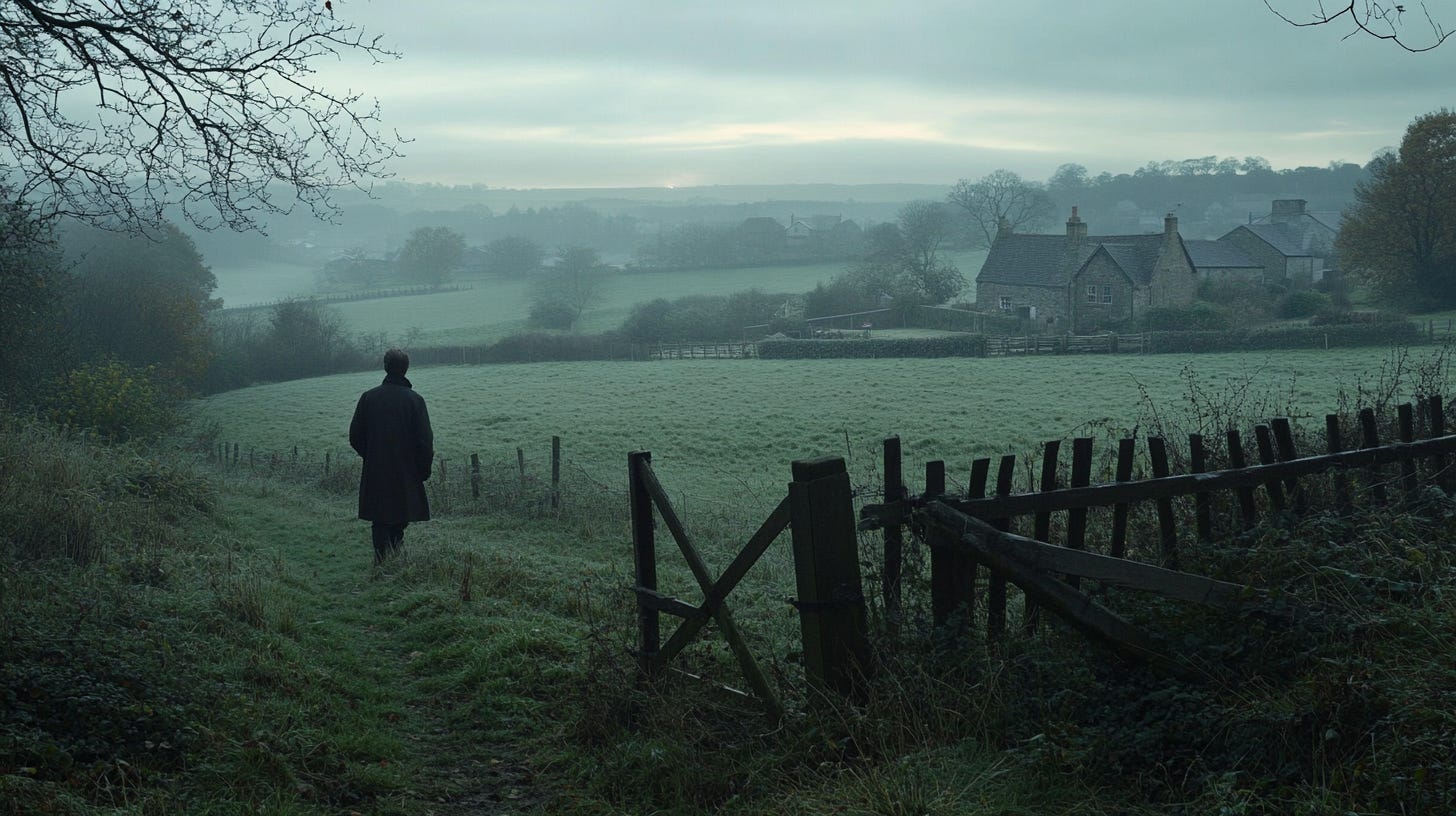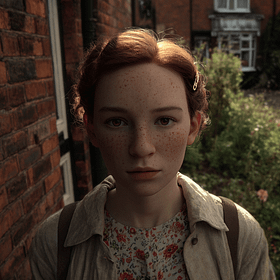By the time June came up the drive, I knew I couldn’t let her in.
We weren’t really dating—just paired off by mutual friends who thought shared faith was enough. We were all church kids—Methodist by label, Evangelical by tone. Singing solos in borrowed pews one week, speaking in tongues the next. It was meant to feel like belonging. Sometimes, it did.
Helen was older, louder, and drove like she was trying to outrun her hometown.
She never said it, but you could feel it—in how she scanned every room for someone single, in how she gripped the wheel like it might steer her straight into the life she thought was waiting for her.
Even years later, when I bumped into her again, she still wanted the same thing.
June rode along. A passenger in every sense.
She was twenty. I was sixteen. The age gap didn’t raise eyebrows back then—not in church, where the dating pool was shallow and the theology forgiving. But it felt like something I’d been drafted into, not something I’d picked.
Prayers were going unanswered. Mum was slipping.
Church had started to feel like pretending.
The first time we kissed, I mostly remember what I didn’t feel. The second time, she told me that she’d read my mum’s medical chart.
She said it like she was offering something generous.
Her mum worked at the local doctor’s surgery, and June had picked up some hours there while waiting to start nurse training.
“I saw your mum’s file,” she said, like it was something she was proud to bring me.
“I know how bad it is.”
Words like ‘liver failure’ and ‘Royal Free’ and ‘pneumonia’ came out of her mouth like they belonged to her now too.
I didn’t say anything.
But in my head: You shouldn’t know that. That wasn’t yours. You don’t belong in this part of my life.
But I didn’t know how to say that out loud.
Not then. Maybe not now, either.
A few days later, she called. Said she was sorry.
I mumbled something that could pass for forgiveness, but we both knew it wasn’t.
She asked if I wanted to go out that weekend. I told her I had to be home.
Then she offered to come over. Said she’d love to meet my mum.
No one was coming over anymore.
Even my godparents—who’d lost their daughter-in-law to cancer—had stopped visiting. Said it was just too hard.
Mum had just come back from the Royal Free in Hampstead.
We’d been told it was only a matter of time.
We hadn’t told her that part.
She was in a hospital bed in the living room by then. Mostly asleep. Her breathing all over the place.
We kept the curtains drawn. What was left of our life fit behind them. And that felt right.
I told June it wasn’t convenient.
I thought that would be enough.
It wasn’t.
That afternoon, I was sitting with my mum. The house was still.
Then I saw movement.
Through the curtain: June.
Walking up the drive like she belonged there.
She’d walked the whole way.
Like that proved something.
My dad went to answer the side door.
I felt my body freeze before it moved.
Out of the living room.
Through the kitchen.
Into the hall.
Unlocked the front door.
Around the house.
Over the fence.
Gone.
I stayed out in the fields for a couple of hours.
The grass had that early-spring scratch to it—the kind that leaves a memory on your jeans.
I don’t remember what I thought about.
Just the cold. The quiet. The safety of being nowhere.
When I came back, the kettle was cold.
My dad said, “You missed your girlfriend.”
“She’s not my girlfriend,” I said.
He looked surprised.
“She said she was.”
“Well, she’s not,” I said again.
I heard how young I sounded.
But also, how final.
He didn’t ask any more questions.
Just told me she’d come in, met my mum, stayed for tea and biscuits, and talked for a while.
I never asked what they talked about.
I never told my mum what June had done.
I don’t think I could.
Mum was close to the end by then.
Everything unsaid felt kinder than anything I could have said.
I never spoke to June again.
Didn’t see her either.
She just vanished. No confrontation. No apology. Just... gone.
Years later, I ran into Helen.
She smiled at me like someone who hoped I might finally see her differently.
Maybe now, she thought I’d be one of the things she was still waiting for.
Some people treat your life like something they’re owed a piece of.
Some people wait a long time for the life they thought would come.
I don’t know what June thought she was offering me.
Maybe she believed it was care.
But it didn’t land that way. Not then.
I’ve never really told anyone this before. Not like this.
Not with the fence, and the fields, and the way my heart beat louder than her knock on the side door.
But what I come back to now isn’t the breach.
It’s the decision.
Mine.
To run.
To climb the fence.
To choose distance over explanation.
To say no with my feet.
There wasn’t a lock.
So I built a door.
Out of breath and grass and flight.
She stayed for tea.
I stayed gone.
Silence was the truest thing I could’ve done.
The above story is true(ish), but below are two fictional prequels, imagining the backstory from Helen and June’s perspectives.
Presence, Not Permanence
Sometimes it takes a nudge—from a fellow writer, a reader, or the soft pressure of an unasked question—to return to a moment you thought had already spoken for itself. For me, that nudge came from Melanie Sumner, who wondered what more there was to say about Helen. About June. About the way we move through each other’s lives, quietly and with consequenc…
Not Mine to Hold
The first companion piece followed Helen—full of longing, resolve, and the ache of quiet misrecognition. This one belongs to June. Where Helen offered presence, June offered something closer to insistence. Both believed they were helping. Neither was asked.





Your youth at the time was perfectly reflected in the short sentences. I could feel the bewilderment and uncertainty mixed with the naivety you felt in relationships.
Truly beautiful writing. Loved the way the emotions are carried throughout. For example, the sentence "The first time we kissed, I mostly remember what I didn’t feel" is just a perfect way to convey what didn't transpire.